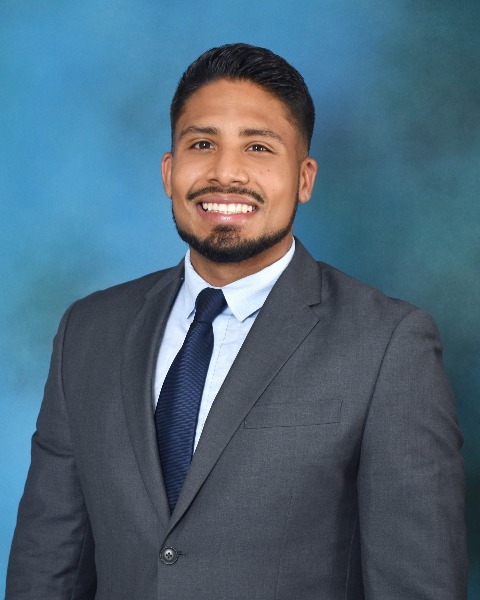Spine
Improving Patient Health Literacy Using Cloud-Based Augmented Reality-Powered Tools for Spinal Conditions
Improving Patient Health Literacy Using Cloud-based Augmented Reality-powered Tools for Spinal Conditions

Gabriel Urreola, BS
Medical Student
UC Davis
Sacramento, California, United States
Presenting Author(s)
Introduction:
Introduction: Degenerative spinal conditions significantly impact quality of life and often require surgical intervention. However, up to 33% of patients lack sufficient knowledge about their condition, potentially due to varying literacy levels, language barriers, and cultural differences. Preoperative anxiety, a predictor of adverse outcomes in spine surgery, can be reduced through effective patient education. Current educational methods, primarily verbal explanations, often fall short in providing comprehensive, personalized information.
Methods: We propose implementing an augmented reality (AR)-based consultation approach using cloud-based tools. The system utilizes Merge Cubes to project dynamic holographs of normal and pathological spinal anatomy, allowing interactive visualization of anatomical relationships and surgical approaches. A randomized controlled trial will evaluate the effectiveness of this tool. Fifty adult patients (18-89 years) scheduled for spine surgery will be randomly assigned to either standard consultation (control, n=25) or AR-powered consultation (intervention, n=25). Primary outcomes include changes in patient knowledge (assessed via modified low back pain knowledge questionnaire) and preoperative anxiety levels (measured using validated questionnaires). Secondary outcomes include patient satisfaction and preference for AR tools. Statistical analysis will employ paired-sample Wilcoxon signed rank tests for within-group comparisons and Mann-Whitney tests for between-group comparisons.
Results: This study aims to demonstrate improved patient health literacy and reduced preoperative anxiety in the AR intervention group compared to standard consultation. The solution provides portability and accessibility, as patients can access personalized surgical plans on their devices through cloud-based AR tools. The developed models will also benefit medical education.
Conclusion : This innovative approach to patient education combines AR technology with personalized surgical planning to address critical gaps in health literacy and preoperative anxiety. Success will be measured through enhanced patient understanding, reduced anxiety levels, and high satisfaction rates. The scalable platform can be expanded to other surgical specialties and medical education, potentially transforming how surgical patients are educated about their conditions and procedures.
Introduction: Degenerative spinal conditions significantly impact quality of life and often require surgical intervention. However, up to 33% of patients lack sufficient knowledge about their condition, potentially due to varying literacy levels, language barriers, and cultural differences. Preoperative anxiety, a predictor of adverse outcomes in spine surgery, can be reduced through effective patient education. Current educational methods, primarily verbal explanations, often fall short in providing comprehensive, personalized information.
Methods: We propose implementing an augmented reality (AR)-based consultation approach using cloud-based tools. The system utilizes Merge Cubes to project dynamic holographs of normal and pathological spinal anatomy, allowing interactive visualization of anatomical relationships and surgical approaches. A randomized controlled trial will evaluate the effectiveness of this tool. Fifty adult patients (18-89 years) scheduled for spine surgery will be randomly assigned to either standard consultation (control, n=25) or AR-powered consultation (intervention, n=25). Primary outcomes include changes in patient knowledge (assessed via modified low back pain knowledge questionnaire) and preoperative anxiety levels (measured using validated questionnaires). Secondary outcomes include patient satisfaction and preference for AR tools. Statistical analysis will employ paired-sample Wilcoxon signed rank tests for within-group comparisons and Mann-Whitney tests for between-group comparisons.
Results: This study aims to demonstrate improved patient health literacy and reduced preoperative anxiety in the AR intervention group compared to standard consultation. The solution provides portability and accessibility, as patients can access personalized surgical plans on their devices through cloud-based AR tools. The developed models will also benefit medical education.
Conclusion : This innovative approach to patient education combines AR technology with personalized surgical planning to address critical gaps in health literacy and preoperative anxiety. Success will be measured through enhanced patient understanding, reduced anxiety levels, and high satisfaction rates. The scalable platform can be expanded to other surgical specialties and medical education, potentially transforming how surgical patients are educated about their conditions and procedures.

.jpg)